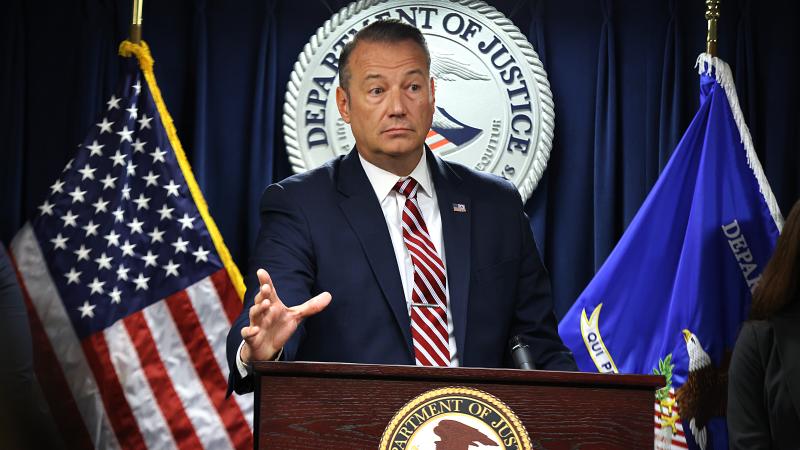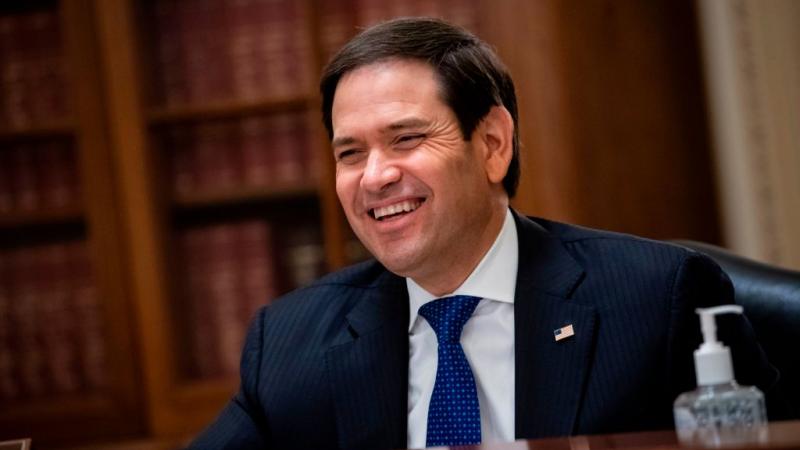National Guard troops return home from peaceful deployment to nation's capital
Some 2,300 soldiers will remain in Washington, D.C. through May 23.
Nearly two months after some 25,000 National Guard troops arrived in Washington, D.C. to quell unspecified threats against the presidential inauguration, soldiers are returning home from uneventful duty, leaving a stay-behind force of some 2,300 soldiers.
"This represents a reduction of nearly 50 percent of the current support force," Defense Department spokesman John Kirby said last week when describing the homeland draw-down. The troops are assigned to support federal law enforcement agencies with communications, medical evacuations, logistics, and security.
The most recent forces to leave Washington, D.C. include troops from California, Illinois, Kentucky, and other states. Some 1,000 troops returned home on Monday to Michigan, after being in the capital region since Jan. 29.
Defense officials have depicted "Operation Capitol Response" as a high stakes, potentially violent mission. One military intelligence unit from California "remained in place to protect and defend the lives, property and rights of all Americans," defense officials wrote.
Individual soldiers, though, have described a deployment marked by calm conditions inside the nation's capital.
"Most of us were on edge" when first mobilized for the Jan. 20 inaugural, said the Michigan National Guard's Spc. Kaitlyn Bessolo. Members of Bessolo's engineering unit wondered if they would face "a bunch of crazy people" in Washington, she said. Instead, they encountered cold weather, but no violence.
"It's been a lot easier than what we all thought it was going to be," said Bessolo, who spoke to a Pentagon media team. "We haven't had any issues with protesters," she added.
An infantryman from Pennsylvania offered similar thoughts.
"It was a big deal to the country to show that we’re out there serving them, even though no big events happened, which is a good thing," said Staff Sgt. Mason Gyurina.
An officer from the District of Columbia National Guard credited the troops with keeping trouble at bay.
"We had a peaceful transfer of power without not a single problem," said Lt. Col. Craig Hunter, who contrasted the Jan. 6 breach on the Capitol with the Jan. 20 inaugural. "Our presence on the Capitol and in the city during this period has been an absolute success."
Hunter said that threats had been made to disrupt the inaugural; but neither he nor other officials have said what the alleged threats entailed.
The security fears in part sprang from the Jan. 6 breach, and partly from rumors that violence would erupt on March 4. Although those fears did not materialize, Capitol Police asked the Pentagon to keep the National Guard in place through May.
"The main thing is making sure the people inside the Capitol are as well protected as the building itself," Bessolo said.
The homeland draw-down takes place while fencing inside the capital is somewhat retracted. Officials did not specify how small the fenced perimeter might become, nor how many soldiers ultimately could remain on hand.
"For security reasons, we will not provide a detailed timeline of specific, future changes," Capitol Police said in a March 15 statement. "The current infrastructure and National Guard assistance is temporary."
National Guard units will remain through May 23 to perform "safety support" and other tasks, according to the Pentagon.















